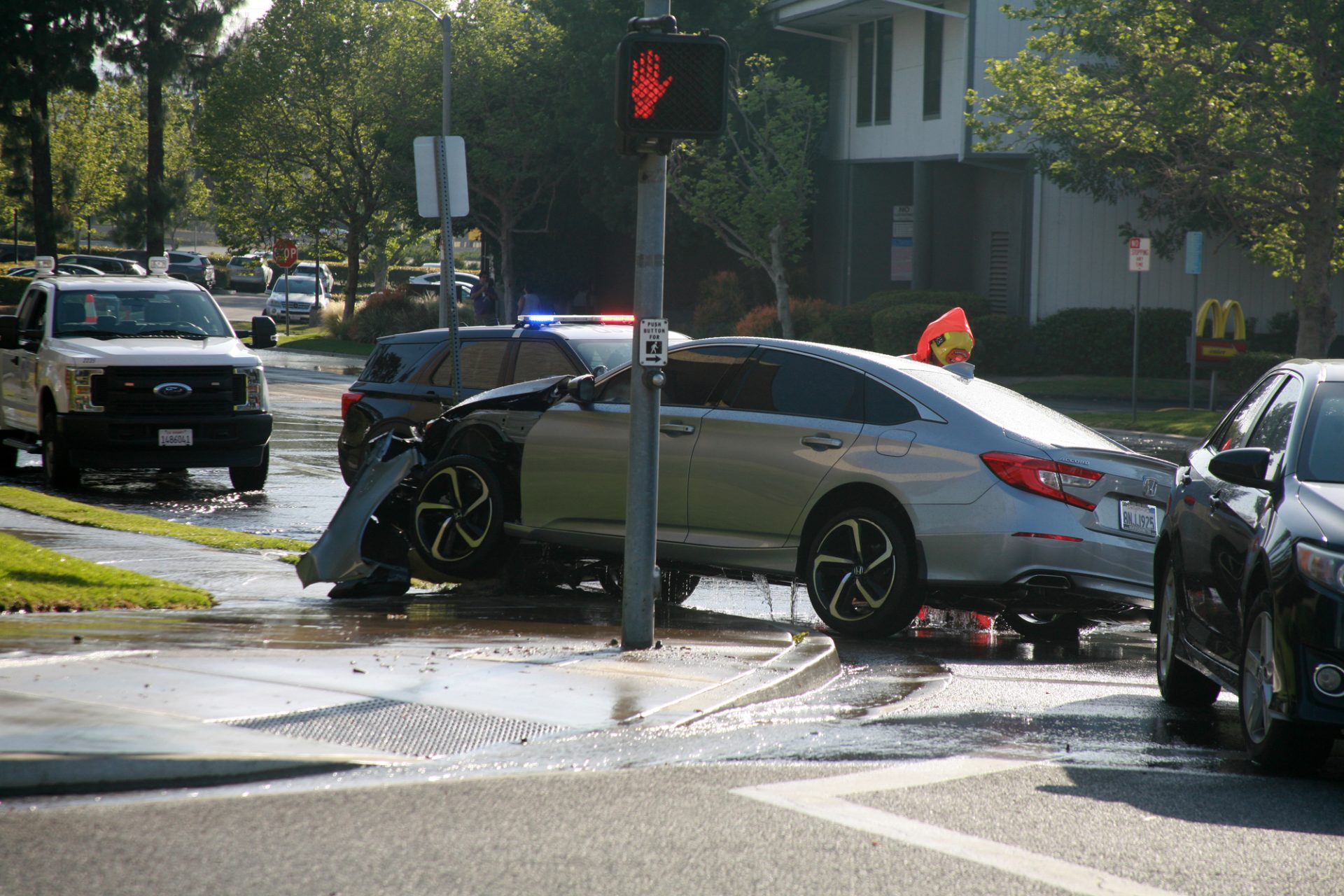While dealing with a car accident that causes injuries or damage to property can be daunting, matters can become more complicated if the accident occurs outside of the state in which you reside. For example, a driver insured in New York could meet with an accident with a driver insured in New Jersey, in either of the two states. Knowing what happens if you get in an out-of-state car accident might be beneficial in any such scenario.
The Basics
No matter where in the U.S. a car accident might occur, some of the aspects remain the same. For example, you may file a lawsuit in the state where the accident took place or where the other driver/party resides. Ideally, you should seek assistance from a personal injury lawyer or attorney who specializes in handling out-of-state car accidents because the laws and statutes of limitations that apply in your state might not be the same elsewhere.
Does Insurance Cover Out-of-State Accidents?
If you have auto insurance in your home state, know that it applies across the country. This is because just about every car insurance policy in the U.S. provides nationwide coverage. However, if you relocate to a new state, the law requires that you buy insurance in the new state and update your registration as well. When it comes to vacations and trips, your home state’s policy should suffice.
Out-Of-State Car Accident Jurisdiction
One of the biggest considerations in out-of-state car accident cases is where you can file lawsuits. As a general rule, you may file a lawsuit in the state where an accident takes place or where an at-fault driver resides. If an accident involves multiple defendants, which is rare, you may file a lawsuit in a state in which any one of the defendants resides.
If you meet with an accident in a state other than your home state that involves an out-of-state driver, filing a lawsuit in your home state might be an option if the at-fault driver from another state has sufficient “minimum contacts” in your state. This could be by owning property or doing business in your state.
If you wish to file a lawsuit against a business such as a transportation company, the options to sue in the state where the accident occurred and where the business is incorporated remain the same. However, you may also file a lawsuit in any other state where the business has a significant presence. This can be beneficial if you plan to file a lawsuit against a large business with a nationwide presence.
Injured in New York and Live Elsewhere
If you reside outside of New York and meet with an accident in this state, you have the right to file a personal injury claim or lawsuit in New York. Alternatively, you may file one in the state in which the other driver resides, if it is other than New York. In any case, seeking advice from a New York-based personal injury lawyer should be your priority.
Your insurance should provide coverage according to New York’s minimum coverage limit requirements. In addition, even if you live in a state that follows the “fault” system, for accidents that take place in New York, the “no-fault” system will apply. This means you might be able to file a claim for no-fault benefits even if your policy does not include them.

Live in New York, Accident Out-Of-State
If you have auto insurance as a driver in New York, you may file a claim with your insurance provider no matter where in the country your accident takes place. Given that New York follows the no-fault system, fault does not matter when you’re filing an insurance claim, especially if your injuries are not serious. In this case, you submit a claim to your insurance company, which then pays you based on the maximum limit.
The other state comes into play only if you suffer serious injuries or damage and want to seek compensation from the other party. However, if you file a claim with the other driver’s insurance company, the given state’s coverage limits might apply.
If you decide to file a lawsuit, you need to do so in the state where the accident occurred or where the defendant resides. Keep in mind that state laws that determine which injuries are serious are not necessarily the same.
Live in New York, Accident With an Out-Of-State Driver
If you live in New York and have an accident with an out-of-state driver, you may file a no-fault claim with your insurance provider. However, if the maximum payout amount does not cover the expenses you might incur owing to the accident, you have the option of filing a claim with the other driver’s insurance provider.
In case the opposing party’s insurance company denies your claim or does not provide the amount you seek, you have the option of filing a lawsuit. Since the accident took place in New York, you may file a lawsuit in New York. Filing a lawsuit in the state where the other driver resides is an option, but you might be better off with the first alternative, given that the latter might require you to travel. To be sure, it’s best to discuss your case with a car accident attorney.
Filing a No-Fault Claim
If you live in New York and have an out-of-state accident or an accident with an out-of-state driver, and if the accident does not result in serious injury or damages, all you need to do is file a no-fault claim with your insurance provider. The insurance company will, in all likelihood, need information about the accident and proof of your medical treatment before it settles your claim. However, since insurance companies try to look for loopholes they may use to decline claims, seeking advice from a personal injury lawyer before filing your claim is ideal.
The Role of State-Specific Insurance Limits
If a covered auto is involved in an accident in another state, what happens to the limits? The short answer to this is that it automatically adjusts to meet the minimum liability requirements of the state in question. As a result, if the state in which you meet with an accident has a higher minimum coverage limit requirement than your home state, the former will apply. However, in case a state has a lower minimum coverage limit than your home state, the coverage mentioned in your policy remains.
Consider this example. You live in New York and meet with an accident in New York with an out-of-state driver. The driver comes from a state that has a lower minimum coverage limit requirement than New York. Since you suffer serious injuries, you decide to file a claim with the other driver’s insurance company. In this case, the other driver’s policy will automatically increase to meet New York’s higher minimum coverage limit.
Statutes of Limitations
The time you get to file a lawsuit for injuries or property damage resulting from a car accident depends on the statute of limitations of the state in question. It typically varies from two to three years, although this is not always the case. Here are a few examples.

Alabama
- Personal injury claims: Two years
- Property damage claims: Two years
Arkansas
- Personal injury claims: Three years
- Property damage claims: Three years
California
- Personal injury claims: Two years
- Property damage claims: Three years
Georgia
- Personal injury claims: Two years
- Property damage claims: Four years
Illinois
- Personal injury claims: Two years
- Property damage claims: Five years
Iowa
- Personal injury claims: Two years
- Property damage claims: Five years
Maine
- Personal injury claims: Six years
- Property damage claims: Six years
Minnesota
- Personal injury claims: Two years
- Property damage claims: Six years
Missouri
- Personal injury claims: Five years
- Property damage claims: Five years
Nebraska
- Personal injury claims: Four years
- Property damage claims: Four years
New Jersey
- Personal injury claims: Six years
- Property damage claims: Six years
New York
- Personal injury claims: Three years
- Property damage claims: Three years
Rhode Island
- Personal injury claims: Three years
- Property damage claims: 10 years
Wisconsin
- Personal injury claims: Three years
- Property damage claims: Six years
Wyoming
- Personal injury claims: Four years
- Property damage claims: Four years
Conclusion
Remember that what happens if you get in an out-of-state accident depends on several factors. For example, do you wish to file a no-fault claim with your insurance provider or do you want to file a claim with the other driver’s insurance company? If that doesn’t work, you may even consider filing a lawsuit.
Given that not all states have the same laws surrounding injuries resulting from car accidents, you should ideally seek advice from an attorney or lawyer who has knowledge of local state laws. For instance, if your accident takes place in New York, getting in touch with a New York-based personal injury lawyer is the best way forward.

